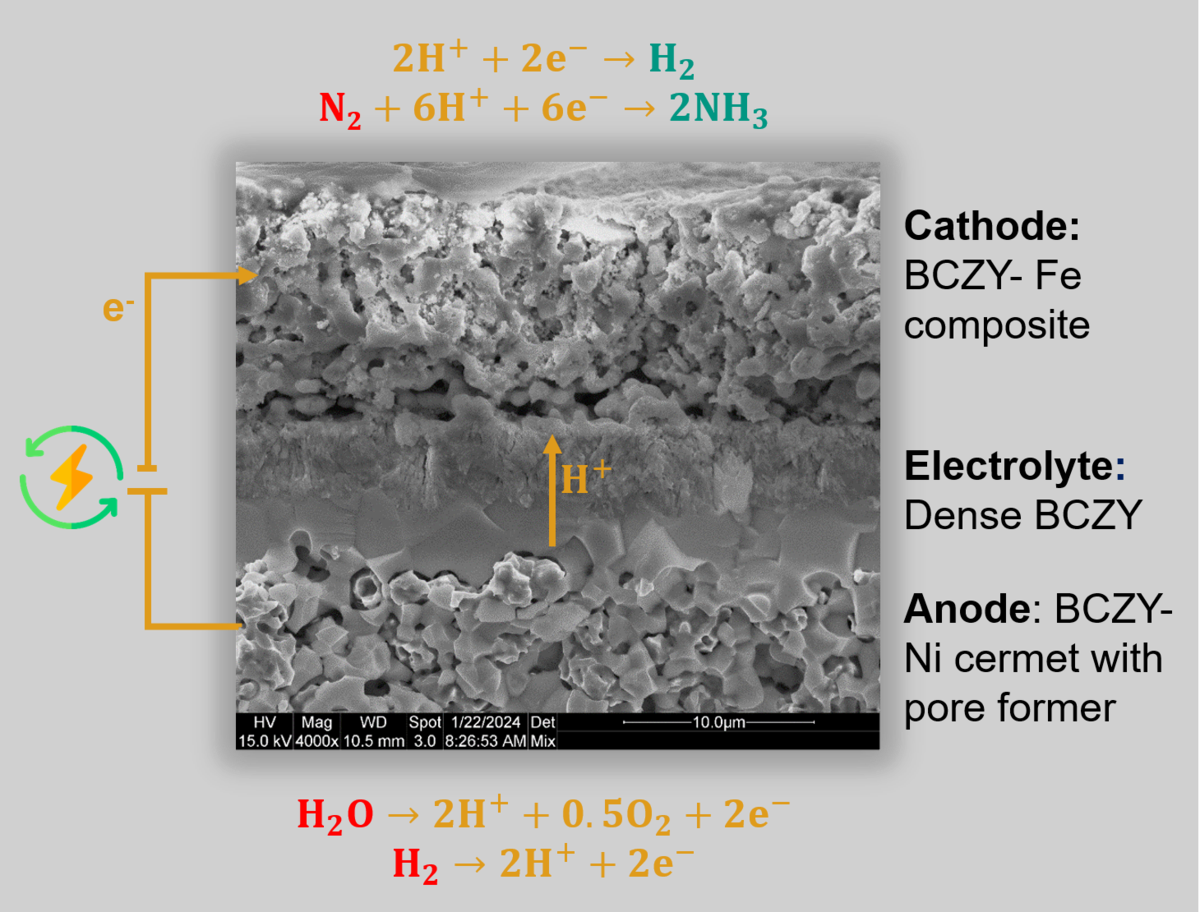Electrochemically supported ammonia synthesis
As an alternative to centralized Haber-Bosch, small-scale electrochemical ammonia synthesis has great potential. Avoiding very high pressures lowers capital costs and enables carbon-free ammonia production when renewable electricity is utilized.
The objective of our work is to develop and demonstrate electrochemical enhancement that makes ammonia synthesis at ambient pressure and temperatures between 400°C to 600°C feasible. Our main focus comprises the development of a suitable electrode (micro-) structure and the selection and incorporation of an effective electro-catalyst. The investigated metal catalysts are introduced into the sintered backbone layer by infiltration and/or by direct embedding into a composite structure. The ceramic cells are produced from scratch using wet chemical processes with yttrium-doped barium cerate zirconate (BCZY) as the main ceramic component. The produced proton-conducting ceramic cells (PCC) with an active cell area of about 12cm2 are tested in a laboratory-scale button-cell reactor.
Contact: Philipp Blanck, Olaf Deutschmann
Funding: "NSF-DFG Echem: Elektrochemisch verstärkte katalytische Niedertemperatur-Ammoniaksynthese" (DE 659/14-1)
Collaborations: Robert J. Kee, Colorado School of Mines (CSM), Golden/CO, USA

